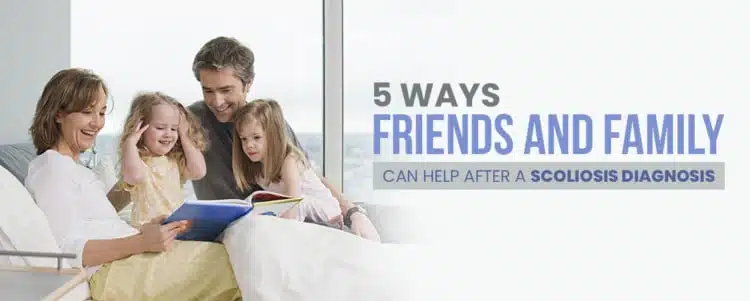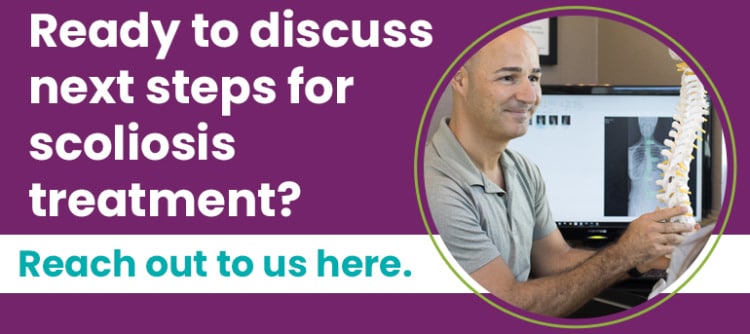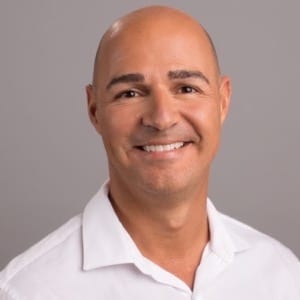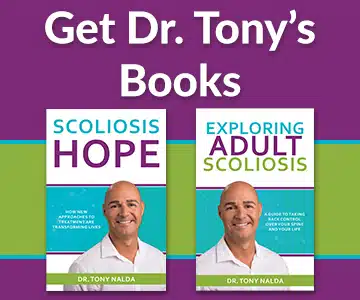Scoliosis is a condition that affects the millions of people who have been diagnosed with it. But it also has a major impact on the friends and family members of each person who has received the diagnosis. Individuals who have scoliosis are fortunate to receive the support of loved ones, but unfortunately, those loved ones do not always know how to provide the best, most appropriate support.
I know from working with countless scoliosis patients that no one overcomes the condition without help and support from others. Treating scoliosis effectively requires hard work and commitment not only from the patient, but from the network of supporters surrounding the patient. My team and I provide the fundamental aspects of effective treatment, but friends and family members provide the essential emotional support and love that’s necessary to drive a patient through treatment successfully.
Sometimes friends and family members offer support with their hearts in the right place, but their actions or words may actually be detrimental. Because scoliosis is not well understood by members of the general public, people are not always sure of what to say or do. Obviously, we do not want to discourage people from supporting those with scoliosis. But it is important to ensure that a patient’s team of supporters understands what is helpful — and what is not helpful.
To help friends and family members understand how they can provide the best support possible, I have come up with five ideas for providing help in the healing process.
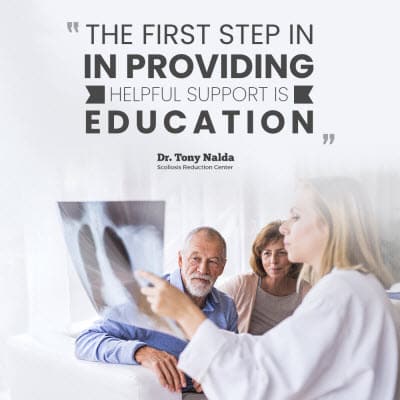
Let’s take a look!
#1 — Understand the Realities of Scoliosis
The first step in providing helpful support is education. The average individual has a perception of scoliosis that might not be accurate or up to date. They may not fully understand the treatment options that are available today. They might be basing their knowledge of the condition on misinformation or second-hand accounts of experiences with scoliosis.
I encourage friends and family members to read and research the condition with open minds. It is important to let go of assumptions about scoliosis and learn about what it really means to have it. For those who are interested in learning more about scoliosis, I can point to a few articles on this blog that will help:
- “What Is Scoliosis? An Introduction to a Confusing Condition”
- “4 Facts About Scoliosis Treatment for Teens”
- “Can a Chiropractor Heal Your Scoliosis?”
- “5 Facts About Scoliosis Causes”
- “Is Scoliosis Hereditary?”
- “9 Surprising Scoliosis Statistics”
- “12 Scoliosis Myths Busted!”
#2 — Know What to Say — and What Not to Say
This is critical.
The most well-intentioned words can have a negative impact on scoliosis patients. Education can help people understand the realities of the condition, which can improve their ability to communicate about it respectfully. But it is also helpful to know some of the basics about the language we use to talk about scoliosis.
First of all, friends and family members should understand that people with scoliosis live rich, full and active lives. They are normal people, just like anyone else. Therefore, they should be communicated with like normal people. They do not require people to be gentle with them in conversation. They just want to have normal, fun conversations like you or me!
Second of all, if a family member or friend is unsure of what to say, they should know that it is okay to ask questions. There is nothing wrong with displaying curiosity about the condition. Patients are usually happy to shed light on areas that are commonly misunderstood when it comes to scoliosis.
Finally, it can be helpful to know some of the things that friends and family members should not say to a scoliosis patient:
“I know someone with scoliosis and…”
This is often said in an attempt to relate and empathize with the scoliosis patient, but it tends to backfire. Sometimes a person wants to tell the patient about a person they knew who “turned out fine” after receiving a scoliosis diagnosis. Or worse, they have negative stories to share about experiences people have had with scoliosis.
Every case of scoliosis is different, so it is not helpful to describe accounts of other people’s experience with the condition. Instead, it is better to focus on the reality of the person who is experiencing the condition here and now.
“The curve looks fine to me!”
Often in an attempt to “cheer up” a person with scoliosis, a family member or friend will offer this assessment. I can understand why someone might feel like this is encouraging, but it is actually not helpful at all. Unless this assessment is coming from a doctor or a qualified scoliosis chiropractor, it is just not appropriate to say.
“Have you tried…?”
Chances are, the scoliosis patient has done more research into treatment than anyone else in their circle has. They are aware of the treatment methods that are available, and have likely consulted with their doctor or chiropractor about the most effective way to move forward. I understand that people want to help and share what they have learned, but they are better off providing emotional support than possible treatment solutions.
“You probably got scoliosis from…”
Once again, in an attempt to provide help and clarity to the scoliosis patient, a friend or family member may feel compelled to offer answers in the form of guesses as to how the condition started. They might mention other family members who have had scoliosis, or make guesses about how certain activities contributed to the condition.
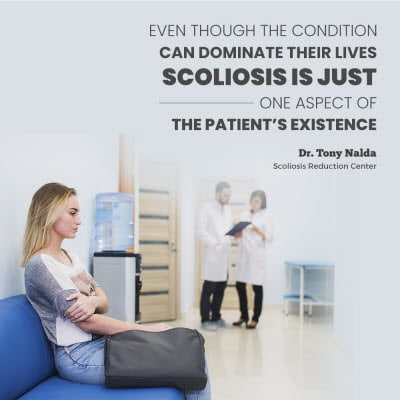
The truth is that most cases of scoliosis are idiopathic, which means that there is no known cause. Speculating about scoliosis causes is one of the least helpful things a person can do to provide support for the patient.
#3 — Remember that the Patient is More Than Their Scoliosis
Even though the condition can dominate their lives, scoliosis is just one aspect of the patient’s existence. People with scoliosis come from all walks of life and have numerous interests. They are individuals with unique stories. Family members and friends should remember that scoliosis is not the defining characteristic of the person they love.
#4 — Practice Compassion
People close to a scoliosis patient can help just by taking time to consider what it must be like to live with the condition. This does not mean pitying or condescending to the patient. Rather, it is about taking them at their word and showing understanding without attempting to solve the condition. The patient probably has the support they require on the medical front; what they need from their family members and friends is compassion.
#5 — Accept the Patient for Who They Are
I work with all kinds of people who have scoliosis, and I am lucky to get to know my patients as individuals. I do not see them as broken, and neither should loved ones. Scoliosis is a challenge to be faced, not a condition that defines an individual. Family members and friends can provide the best possible support simply by accepting their loved one as-is.
